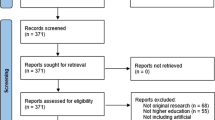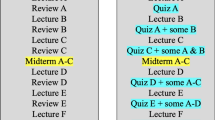Abstract
Current research suggests a role for biomedical knowledge in learning and retaining concepts related to medical diagnosis. However, learning may be influenced by other, non-biomedical knowledge. We explored this idea using an experimental design and examined the effects of causal knowledge on the learning, retention, and interpretation of medical information. Participants studied a handout about several respiratory disorders and how to interpret respiratory exam findings. The control group received the information in standard “textbook” format and the experimental group was presented with the same information as well as a causal explanation about how sound travels through lungs in both the normal and disease states. Comprehension and memory of the information was evaluated with a multiple-choice exam. Several questions that were not related to the causal knowledge served as control items. Questions related to the interpretation of physical exam findings served as the critical test items. The experimental group outperformed the control group on the critical test items, and our study shows that a causal explanation can improve a student’s memory for interpreting clinical details. We suggest an expansion of which basic sciences are considered fundamental to medical education.

Similar content being viewed by others
Notes
The text reports the analysis of the restricted data set. The comparable statistics for the full data sets (drop outs and non learners included) found no effect of condition on the control items, F (1, 186) = 0.690, p = 0.417, and no significant difference between the immediate and delayed control item test scores, F (1, 186) = 2.53, p = 0.113. With regard to the critical test items, a significant main effect of condition was found, F (1, 186) = 8.632, p = 0.004. There was also an effect of Test, F (1, 186) 4.181, p = 0.042, and no interaction was found F (1, 186) = 0.089 p = 0.766. These statistics differ quantitatively from those reported the main text but do not differ qualitatively.
References
Bickley, L., Szilagyi, P. G., & Bates, B. (2007). Bates’ guide to physical examination and history taking. Philiadelphia, PA: Lippincott, Williams & Wilkins.
Finnerty, E. P., Chauvin, S., Bonaminio, G., Andrews, M., Carroll, R. G., & Pangaro, L. N. (2010). Flexner revisited: The role and value of the basic sciences in medical education. Academic Medicine, 85, 349–355.
Irby, D. M., Cooke, M., & O’Brien, B. C. (2010). Calls for reform of medical education by the carnegie foundation for the advancement of teaching: 1910 and 2010. Academic Medicine, 85, 220–227.
Keil, F. C. (2006). Explanation and understanding. Annual Review of Psychology, 57, 227–254.
Murphy, G. L., & Medin, D. L. (1985). The role of theories in conceptual coherence. Psychological Review, 92, 289–316.
Norman, G. (2005). Research in clinical reasoning: Past history and current trends. Medical Education, 39, 418–427.
Norman, G. R., Trott, A. L., Brooks, L. R., & Smith, E. K. M. (1994). Cognitive differences in clinical reasoning related to postgraduate training. Teaching and Learning in Medicine, 6, 114–120.
Norman, G., Eva, K., Brooks, L. R., & Hamstra, S. (2006). Expertise in medicine and surgery. In K. A. Ericsson, N. Charness, P. L. Feltovich, & R. R. Hoffman (Eds.), The Cambridge handbook of expertise and expert performance (pp. 339–353). Cambridge, UK: Cambridge University Press.
Norman, G. R., Dore, K., Krebs, J., & Neville, A. J. (2007). The power of the plural: Effect of conceptual analogies on successful transfer. Academic Medicine, 82, S16–S18.
Patel, V. L., & Groen, G. J. (1986). Knowledge-based solution strategies in medical reasoning. Cognitive Science, 10, 91–116.
Rehder, B. (2010). Causal-based classification: A review. In B. H. Ross (Ed.), The psychology of learning and motivation, vol. 52. (pp 29–116). Burlington, VT: Academic Press 52, 29–116.
Schmidt, H. G., & Boshuizen, H. P. A. (1993). On acquiring expertise in medicine. Educational Psychology Review, 5, 205–221.
Schmidt, H. G., Norman, G. R., & Boshuizen, H. P. A. (1990). A cognitive perspective on medical expertise: Theory and implications. Academic Medicine, 65, 611–621.
The Association of Faculties of Medicine of Canada. (2009). The future of medical education in Canada (FMEC): A collective vision for MD education. Ottawa, ON: The Association of Faculties of Medicine of Canada.
Verkoeijen, P. P. J. L., Rikers, R. M. J. P., Schmidt, H. G., Van De Wiel, M. W. J., & Kooman, J. P. (2004). Case representation by medical experts, intermediates and novices for laboratory data presented with or without a clinical context. Medical Education, 38, 617–627.
Weslby, P. D., & Earis, J. E. (2001). Some high pitched thoughts on chest examination. Postgraduate Medical Journal, 77, 617–620.
Woods, N. N., Brooks, L. R., & Norman, G. R. (2005). The value of basic science in clinical diagnosis: Creating coherence among signs and symptoms. Medical Education, 39, 107–112.
Woods, N. N., Howey, E. H. A., Brooks, L. R., & Norman, G. R. (2006). Speed kills? Speed, accuracy, encapsulations and causal understanding. Medical Education, 40, 973–979.
Woods, N., Brooks, L. R., & Norman, G. R. (2007). The role of biomedical knowledge in diagnosis of difficult clinical cases. Advances in Health Sciences Education, 12, 417–426.
Acknowledgments
This research was supported by a Research Developments Initiative Grant from the Social Science and Humanities Research Council of Canada to JPM.
Author information
Authors and Affiliations
Corresponding authors
Additional information
MG and JPM are both lead authors on this paper. Order was determined alphabetically.
Rights and permissions
About this article
Cite this article
Goldszmidt, M., Minda, J.P., Devantier, S.L. et al. Expanding the basic science debate: the role of physics knowledge in interpreting clinical findings. Adv in Health Sci Educ 17, 547–555 (2012). https://doi.org/10.1007/s10459-011-9331-2
Received:
Accepted:
Published:
Issue Date:
DOI: https://doi.org/10.1007/s10459-011-9331-2




